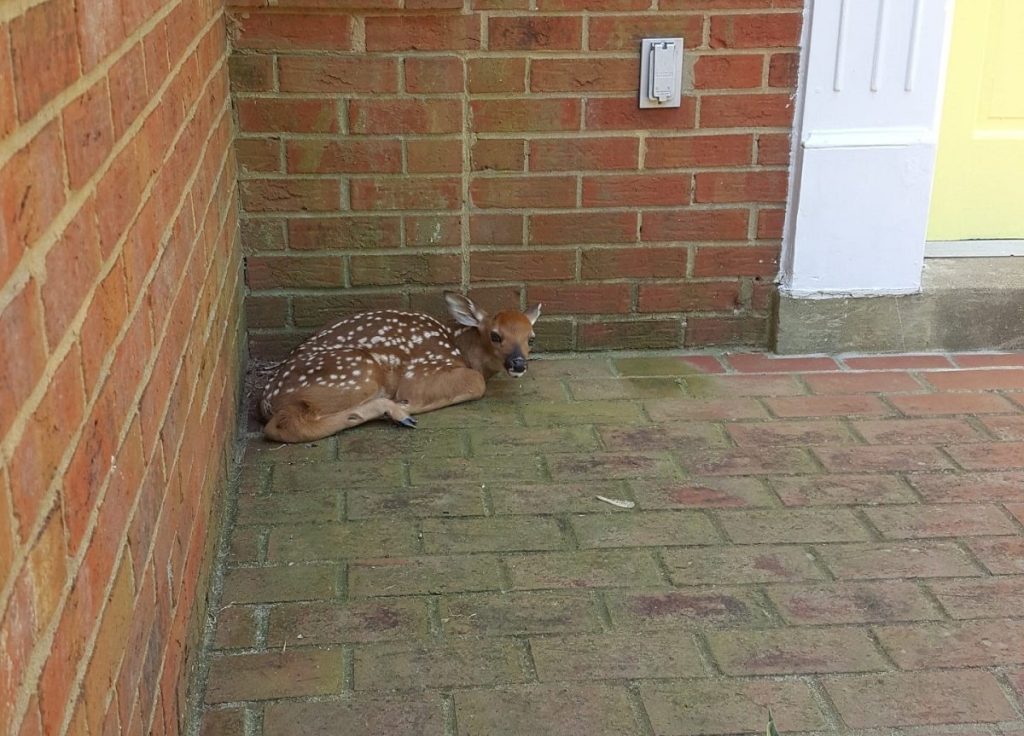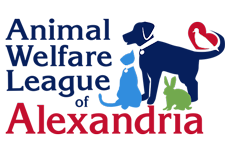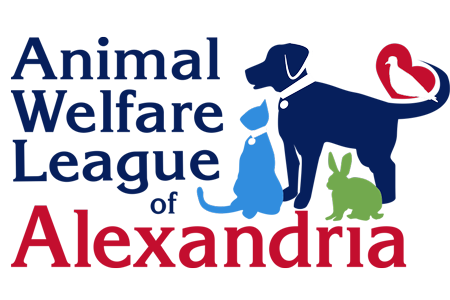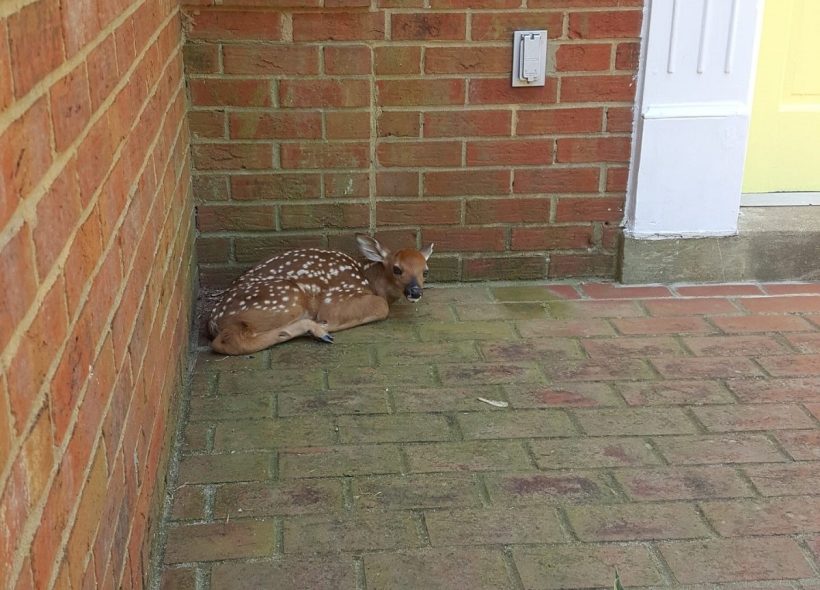
The young fawn pictured was recently found on a concerned citizen’s front porch. The resident was worried the fawn had been abandoned and called the AWLA’s Animal Services team for help. Our Animal Services Officers quickly determined that the fawn was not abandoned. The mother felt the resident’s front porch was a safe place to leave her young while she went to forage for food.
In fact, from May to the end of June, newly born fawns are left by their mothers for long periods of time, and it is not uncommon to find one all by itself. These fawns are almost never abandoned and only need for us humans to leave them alone and let Mother Nature do her thing.
While it’s important to note that most fawns found by themselves do not need human intervention, there are some clear signs that they may need help. Here is a list of signs that a fawn does need human intervention:
- Flies – Flies around the head and/or rear are an indication that the fawn is not doing well. This won’t be just a few buzzing around here or there, but rather several flies actually landing on the fawn.
- Injuries – Obviously any fawn that is actively bleeding or has visible open wounds needs assistance.
- Bleating – Bleating means the fawn is vocally calling out. Healthy fawns who are being actively cared for by the mother generally don’t make any noise. Sometimes you may hear a mother deer call out and the fawn will respond, but a fawn that is wandering around calling out on its own is a reason for concern.
- Wrinkled Ears – Normally, a healthy fawn’s ears will be fully erect, but may curl slightly at the tip. A fawn whose ears are extremely wrinkled and curled may be a sign that it needs help.
- Dirty Rear – A fawn that appears to have a very dirty looking rear end is a sign that it is not healthy and it may need human intervention.
If you see a fawn with any of these signs in the City of Alexandria, please do not intervene on your own.
Our Animal Services Officers are trained to provide the proper assistance and have the resources to reach out to wildlife rehabilitators for further help. If you find a fawn outside of the City of Alexandria, please contact that area’s animal control. Due to wildlife regulations regarding chronic wasting disease, we are unable to accept or provide assistance outside of the City of Alexandria.


